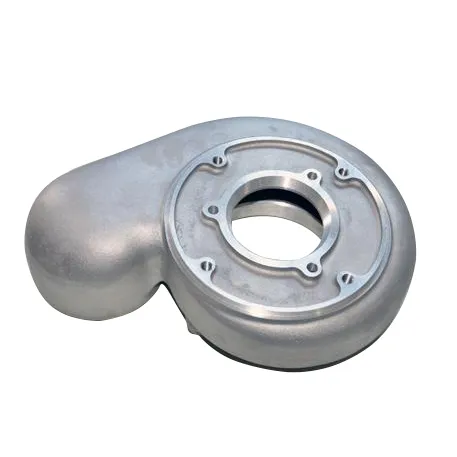Mobile:+86-311-808-126-83
Email:info@ydcastings.com
the impeller
Understanding the Impeller Design, Function, and Applications
The impeller is a critical component in various mechanical systems, especially in pumps and turbines. It serves to introduce energy into a fluid, enhancing its movement and flow. Through an understanding of the design, function, and applications of impellers, we can appreciate their significance in engineering and industry.
Design of Impellers
Impellers come in a variety of designs, which can broadly be classified into two main types radial and axial. Radial impellers, also known as centrifugal impellers, push the fluid outward from the center, converting rotational energy into kinetic energy. This type is common in centrifugal pumps where high pressure and flow rates are needed. Axial impellers, on the other hand, move fluid along the axis of rotation. This design is used in propellers and certain types of pumps where a steady flow is more critical than pressure.
The materials used for impellers can vary depending on their applications and the fluids they handle. Common materials include stainless steel, plastic, and cast iron, each offering unique benefits such as corrosion resistance, lightweight characteristics, or high strength. Advanced designs often incorporate computational fluid dynamics (CFD) to optimize performance, improve efficiency, and reduce turbulence in fluid flow.
Functionality of Impellers
The primary function of an impeller is to transfer energy from a motor or engine to a fluid, resulting in a change in pressure, velocity, or flow rate. In centrifugal pumps, the impeller rotates, creating a low-pressure area at the center that draws fluid in. As the impeller blades push the fluid outward, the energy transfer increases its velocity and converts it into pressure, thus facilitating the movement of the fluid through a piping system.
the impeller

In applications like jet engines, the impeller plays a crucial role in compressing air before it enters the combustion chamber, significantly affecting the engine's performance. Similarly, in hydroelectric plants, water is directed through an impeller to produce electricity, showcasing its versatility in energy conversion.
Applications of Impellers
Impellers find extensive use across various industries, including water treatment, chemical processing, oil and gas, and HVAC systems. In water treatment facilities, impellers are essential for mixing chemicals and ensuring effective aeration in wastewater processing. For chemical processing, impellers help maintain consistent flow rates during reactions, ensuring safety and efficiency.
In the oil and gas industry, submersible pumps equipped with impellers are used to extract oil from deep underground reservoirs. Particularly in offshore drilling, the reliability of these impellers is vital in maintaining production levels while saving costs.
Moreover, in the HVAC industry, fans equipped with axial or centrifugal impellers circulate air efficiently, providing adequate ventilation and maintaining indoor air quality.
Conclusion
In summary, the impeller is an essential component in various mechanical systems, enabling fluid movement and energy transfer. Its design, functionality, and applications showcase its importance across multiple industries. As technology advances, the development of more efficient and robust impeller designs will continue to enhance performance in fluid dynamics, driving innovation in engineering and technology. Understanding the role of the impeller is vital for anyone involved in fields that rely heavily on fluid movement, underscoring its integral position in modern engineering solutions.
-
Why Should You Invest in Superior Pump Castings for Your Equipment?NewsJun.09,2025
-
Unlock Performance Potential with Stainless Impellers and Aluminum End CapsNewsJun.09,2025
-
Revolutionize Your Machinery with Superior Cast Iron and Aluminum ComponentsNewsJun.09,2025
-
Revolutionize Fluid Dynamics with Premium Pump ComponentsNewsJun.09,2025
-
Optimizing Industrial Systems with Essential Valve ComponentsNewsJun.09,2025
-
Elevate Grid Efficiency with High-Precision Power CastingsNewsJun.09,2025











